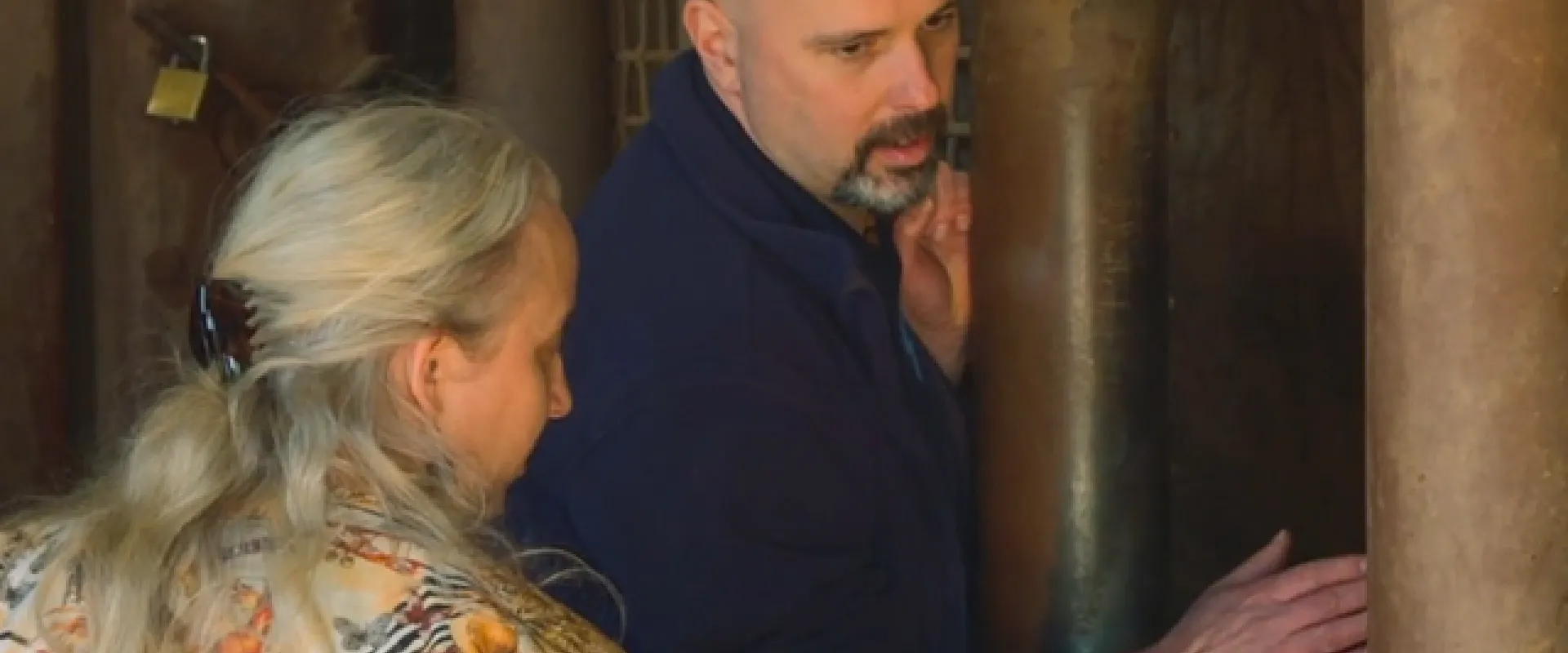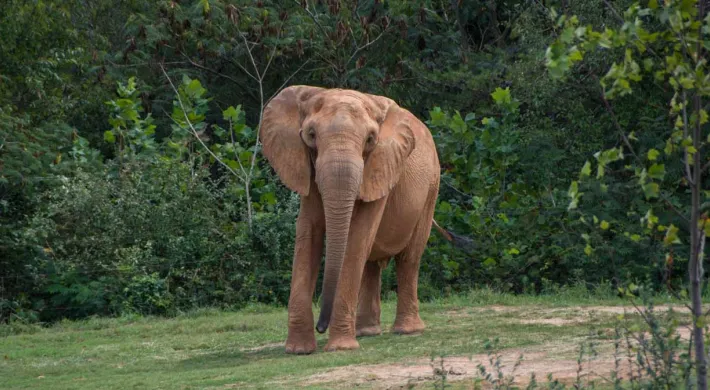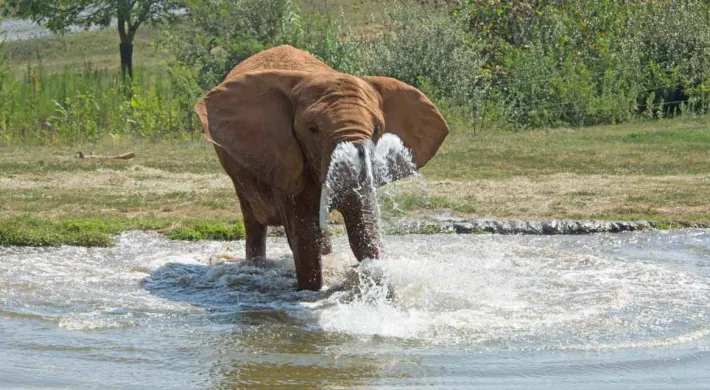Written by Jordan Strobel, Zookeeper, North Carolina Zoo
If you see an animal with needles all over its body, you’re probably looking at a porcupine! At the North Carolina Zoo, our porcupine isn’t the only animal sporting some pointy hardware. A few years ago, Batir, one of our female African Elephants, was knocked down by a larger elephant and injured her front right leg. She showed some stiffness in her elbow and shoulder joints, so we quickly started a physical therapy program to encourage her to stretch and move her leg. With positive reinforcement training, we taught Batir to stretch and lift her leg in various directions to help keep her joints mobile, and in return, she received some of her favorite fruits, like apples, bananas and melon.
As our keepers and veterinarians monitored her progress, we became concerned that physical exercise would not be enough to improve her mobility in her leg.
As concerns of arthritis arose, we needed a better look at what was going on inside her elbow joint. After more training, we took radiographs of her elbow to assess the physical structure of her joint. With the radiographs, we could see the early stages of arthritis developing in her elbow that could affect her for years to come. Our veterinarians researched and collaborated with other zoos, trying to determine the best treatment to relieve some of the pain that Batir could be experiencing from this.
Acupuncture uses tiny needles inserted into specific points on the body, to stimulate the body’s nervous system and decrease pain receptors. Acupuncture has been practiced on humans for thousands of years and is becoming a more common, natural treatment for arthritis. Veterinarians are now trying acupuncture on animals with arthritis as a more natural approach than long-term medications. Some zoos see great results with acupuncture treatments for geriatric penguins, koalas, Komodo dragons, and giraffes! We were excited to try this treatment with Batir!
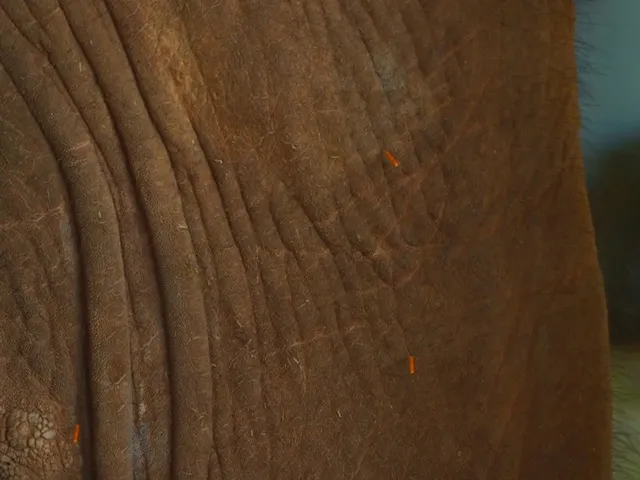
Batir acupuncture close up
First, we had to get Batir ready for an acupuncture treatment. Treatment would involve inserting multiple tiny needles into Batir’s leg and leaving them in for at least five minutes. This would be a challenge since she has a long trunk that could easily grab and pull out the needles! We spent time getting Batir comfortable with her keepers, applying light pressure to her elbow joint, and standing still for a few minutes at a time. Batir is our youngest elephant, and one of her least favorite things to do is stand still! However, she loves to learn new behaviors in her training sessions and quickly became a rockstar at keeping still and letting us apply pressure to her elbow with blunted needles.
Our veterinarians brought in Dr. Tara Harrison from N.C. State College of Veterinary Medicine for Batir’s treatment. Dr. Harrison is a board-certified specialist in zoological medicine and a certified animal acupuncturist. While Batir focused on her trainer, the acupuncturist inserted multiple needles around her elbow. Elephants have very thick skin (up to 2 inches on certain areas of their bodies!), but they can still feel bugs land on them and, of course, needles poking them. With each needle insertion, Batir received some of her favorite fruits to keep her calm and focused on her trainer so that she wasn’t reaching her trunk back to pull out the needles. We wanted to keep the needles in for at least five minutes for effective treatment time, which seems like forever when with an elephant! All of our training paid off, as Batir stayed focused on her trainer and left the needles alone for the whole treatment time. When it was time to end the session, Batir stood still for the acupuncturist to remove the needles, and she received a big melon as a reward!
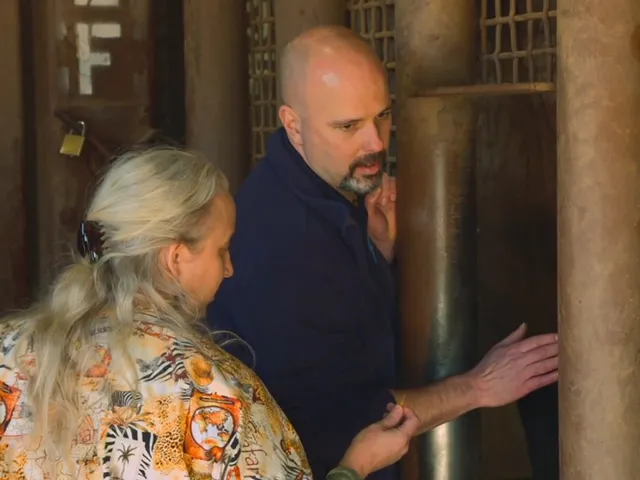
Batir getting acupuncture as seen on an episode of Secrets of the Zoo: North Carolina on Nat Geo WILD
At the North Carolina Zoo, we strive to give all of our animals the best care every day. Through the hard work of our animal keepers and veterinary team, we’re always thinking outside of the box to improve our animals’ quality of life and keep them comfortable whenever a medical issue arises. Batir is such a fun elephant to work with because her natural curiosity and ability to learn new behaviors make her a great candidate for new treatments. We’re continuing to monitor the progression of Batir’s arthritis and are excited to try more acupuncture treatments with her!
